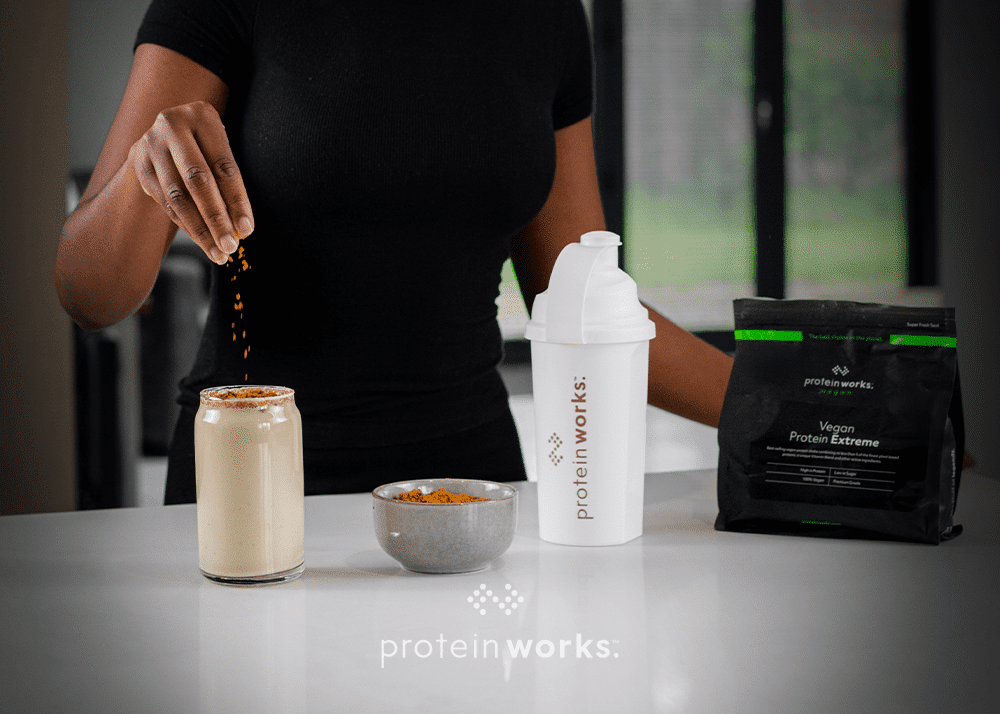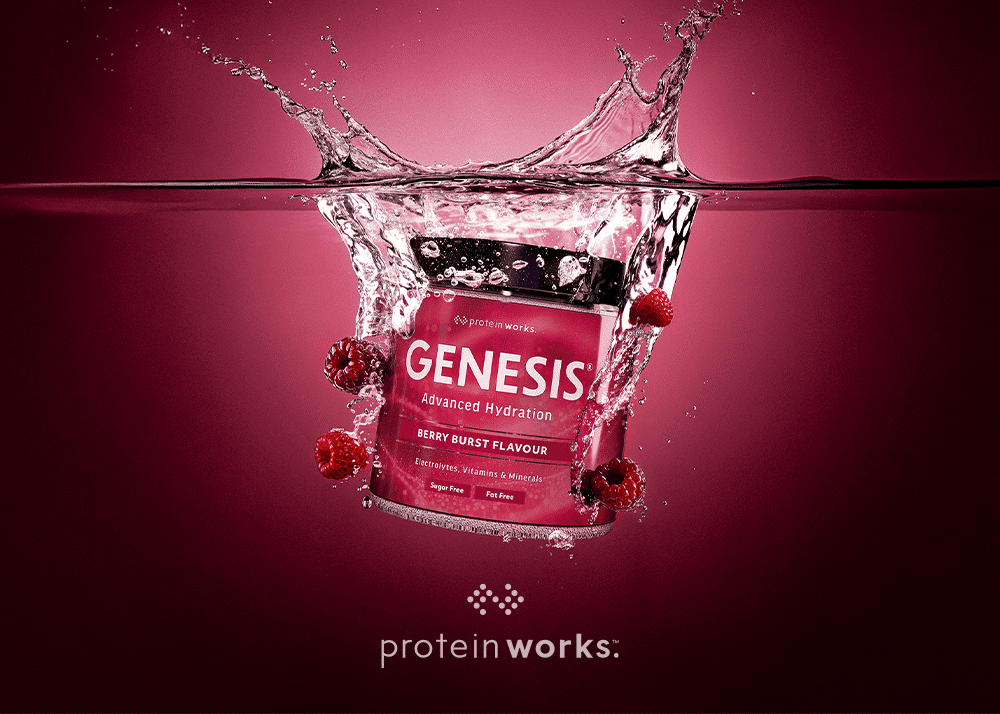
Is Chocolate Milk Good for Recovery?
As a runner or big gym-goer, you’ve probably got your go-to recovery drinks locked and loaded after a workout (All In One Recovery, anyone?). But what if we told you one of your childhood favourites could be just as good? Chocolate milk has been all the rage with runners lately due to its alleged recovery benefits, and we’re here to delve into whether there’s any truth behind the trend. From what happens to your body after a workout, to how chocolate milk could directly boost this, read on to find out if this post-run pint could be the remedy your body needs.
What happens to your body after a workout?
After any sort of exercise, your body needs to replenish all of the energy it’s spent. It’ll return back to its resting state, with your heart rate and breathing slowing down, and your muscle will start to repair any tiny tears in the fibres. To fuel this repairing, your body needs four key things: carbohydrates, protein, electrolytes, and fluids.
The carbs will replenish your glycogen stores, helping you avoid fatigue and keep your energy up. The protein will support muscle repair and growth: vital if you’re trying to build muscle or fitness! Electrolytes will replace the sodium, potassium and other minerals you lost via sweat in your workout, and fluids will re-hydrate your body.
So how does chocolate milk measure up when it comes to helping your body do all this?
The nutritional breakdown of chocolate milk
Typically, chocolate milk is made by mixing cow’s milk with cocoa and sugar or sweeteners. Compared to normal milk, it’s got more carbs and calories, with one 250ml serving providing:
Calories: 206
Protein: 8 grams
Carbs: 26 grams
Sugar: 24 grams
Fat: 8.4 grams
Calcium: 21% of the Daily Value (DV)
Vitamin D: 16% of the DV
Riboflavin: 31% of the DV
Potassium: 9% of the DV
Phosphorus: 20% of the DV
The protein split in milk is 80% casein and 20% whey, meaning it’s great for slow-release energy after your run – and it’s a complete protein, meaning it contains all nine essential amino acids. It’s also got a balanced carb-to-protein ratio of around 3:1, which is considered an ideal balance for glycogen resynthesis. The minerals and nutrients are also great for your body’s recovery and overall wellness, especially calcium and vitamin D.
However, it’s also important to note that there’s added sugar in chocolate milk, which could tip you over the edge of your recommended daily intake if you’re not careful. With 1.5-2x more sugar than regular cow’s milk (up to 3 teaspoons in one 150ml glass), you just need to be mindful that you don’t overdo it and max out your daily sugar from this one drink.
What the science says
It’s not just social media buzz: the studies have been done, and chocolate milk has been shown to be just as effective (if not more) than commercial sports drinks for your body’s recovery after exercise. It even shows evidence of improving endurance in subsequent workouts after drinking it, as well as reducing muscle soreness. Sounds too good to be true? Let’s get into the pros and cons of this seemingly magical milk to see if it could be right for you.
Pros of chocolate milk as a recovery drink
The good news about chocolate milk is it tends to be a lot cheaper and more widely available than the sports drinks specifically designed for recovery. It’s also consistently tasty and easy to digest as long as your body tolerates dairy. We also love that it contains a good balance of carbs and protein, as well as providing natural rehydration and electrolytes.
So, if you’re a long distance runner or tend to do more intense workouts, this could be a great recovery drink to help you bounce back faster and even increase your endurance.
Any downsides?
It’s not all perfect. As we mentioned, there is a fair bit of added sugar in chocolate milk, so if you’re not training hard or are watching your sugar intake, this may not be the best option for you.
It’s also, to state the obvious, milk, so vegans or lactose-intolerant runners should steer clear (you can find plant-based versions, but their nutritional profiles vary much more).
Additionally, chocolate milk can be calorie-dense, so those aiming for weight loss may not want to use up their daily allowance on this if there are low-cal options available to them.
Finally, specific sports recovery formulas include additional ingredients you could find helpful, such as creatine or extra essential amino acids. Chocolate milk wasn’t created for workout recovery, believe it or not, so if you want something that’s optimised for this exact use, you might be better off sticking to something tailor-made for gym-goers.
Plant-based chocolate milk alternatives
Vegans and lactose-intolerant readers: don’t worry. There are plant-based options for you out there, but it may require a little more discernment to find ones with the best results. Many oat, soy, or pea-based chocolate milks have very similar carb-protein ratios as their dairy equivalents, but they’re often lower in protein unless it’s been explicitly added. They’re also often not fortified with calcium or vitamin D. So, if you’re looking into trying this as a recovery option, we’d recommend reading the labels closely to find a brand with similar amounts of protein, carbs, and minerals as the amounts in dairy milk listed above.
So, should you drink it?
In short, chocolate milk can be a great recovery drink, but it’s especially good for those doing long or intense workouts. It’s definitely not an exercise necessity – your classic high-protein meals still work as well as ever – but if you’re in a pinch, can’t get your hands on the fancy powders, or just really fancy a glass of it, chocolate milk could be a game-changer. Give it a go, and see how your body responds – at the very least, your inner child will love it.
Rather reach for a purpose-made, protein-packed drink? Our range of protein shakes has something for all tastes. Take a look to find one you’ll love!
References
Is Chocolate Milk Good for You, or Bad? | Healthline
Karp, Jason R et al. “Chocolate milk as a post-exercise recovery aid.” International journal of sport nutrition and exercise metabolism vol. 16,1 (2006).
Kerksick, Chad et al. “International Society of Sports Nutrition position stand: nutrient timing.” Journal of the International Society of Sports Nutrition vol. 5 17. 3 Oct. 2008.
Pritchett, Kelly, and Robert Pritchett. “Chocolate milk: a post-exercise recovery beverage for endurance sports.” Medicine and sport science vol. 59 (2012).
Thomas, Kevin et al. “Improved endurance capacity following chocolate milk consumption compared with 2 commercially available sport drinks.” Applied physiology, nutrition, and metabolism = Physiologie appliquee, nutrition et metabolisme vol. 34,1 (2009).




